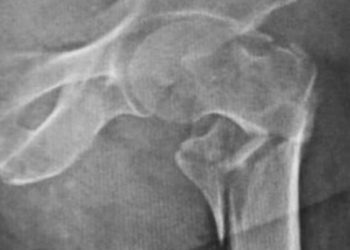Difficulty diagnosing autism spectrum disorders in Latino children
Image: PD
1. Most primary care pediatricians (PCPs) do not perform AAP-recommended screenings for autism spectrum disorders (ASDs) and perceive Latino parents as less knowledgeable about ASD than white parents.
2. 75% of PCPs experienced access, language, cultural, or communication barriers to ASD diagnosis in Latino children, with the most frequent barriers being limited access to ASD specialists and language barriers.
Evidence Rating Level: 2 (Good)
Study Rundown: Studies have shown that racial and ethnic disparities exist in the diagnosis of ASD, particularly among Latino families. Compared to white children, Latino children are diagnosed with ASDs later in development and have more severe symptoms at the time of diagnosis. Because PCPs have early, regular contact with families, they are key to early ASD recognition. This study evaluated PCP views and practices regarding ASD diagnosis among Latino children to better understand disparities and help ensure early diagnosis and intervention. Results indicated that most PCPs did not perform the AAP-recommended developmental or ASD-specific screenings. Furthermore, most PCPs experienced significant barriers to and difficulty in diagnosing ASD in Latino children. Limitations include setting the study in California, where providers have more contact with Latino patients; PCP perceptions and practices may differ in areas with a smaller Latino population. This study highlights some modifiable factors that may contribute to ASD diagnostic disparities among Latino children and could thereby influence future interventions for reducing these differences, such as bilingual parent manuals.
Click to read the study published today in Pediatrics
Relevant Reading: Disparities in diagnosis and access to health services for children with autism: data from the National Survey of Children’s Health.
Study Author, Dr. Katharine Zuckerman, MD, MPH, talks to 2 Minute Medicine: Assistant Professor of Pediatrics, Oregon Health & Science University, Portland, OR.
“Early autism identification improves child and family outcomes, but autism is challenging to identify in the primary care setting. Our study shows that autism is even more difficult to identify in children whose families speak a language other than English. The findings suggest that, if we want to reduce the age of autism identification in Latinos, pediatricians need more support. Greater access to free or low-cost autism screening materials and parent information about autism would help pediatricians identify autism and talk about it with Latino families. Improving autism awareness in the Latino community may also help parents come to the pediatrician’s office better informed. Increasing the supply of developmental specialists, especially bilingual or Latino specialists, would also make it easier for pediatricians to refer a child to appropriate resources when they have concerns.”
In-Depth [prospective cohort study]: A total of 267 PCPs completed a mail-based survey that covered screening use, barriers, ASD knowledge perception, and ability to identify ASD signs/symptoms, with a 62.59% response rate. Most PCPs (80.5%) offered some routine developmental screening, although only a subset offered the AAP-recommended developmental (30.4%) or ASD-specific (42.9%) screenings. Only 15.2% offered both recommended screenings. Most PCPs reported that parents of Latino and African American children had lower levels of ASD knowledge than parents of white children, with the biggest difference between Latino/Spanish Primary Family Language (PFL) parents and white parents. More PCPs had significant difficulty identifying ASD risk in Latino/Spanish PFL and African American children than in white children (60.4% and 37.6% vs. 33.2%). Furthermore, 74.5% of PCPs experienced ≥1 barriers to ASD diagnosis in Latino children, with 60.7% experiencing ≥1 access barrier and 68.2% experiencing ≥1 language, cultural, or communication barrier. The most frequent barriers were “limited access to developmental or ASD specialists”, “language differences between providers and patients/families”, and “limited access to primary care”.
By Cordelia Y. Ross and Leah H. Carr
More from this author: Children with abdominal pain at risk for anxiety, depression; Adolescent smoking heavily influenced by parents and siblings; Autistic boys spend more time playing video games; Parents’ TV viewing time is strongly associated with child viewing time; Half of parents aware of CT radiation cancer risk
© 2013 2minutemedicine.com. All rights reserved. No works may be reproduced without expressed written consent from 2minutemedicine.com. Disclaimer: We present factual information directly from peer reviewed medical journals. No post should be construed as medical advice and is not intended as such by the authors, editors, staff or by 2minutemedicine.com. PLEASE SEE A HEALTHCARE PROVIDER IN YOUR AREA IF YOU SEEK MEDICAL ADVICE OF ANY SORT.









